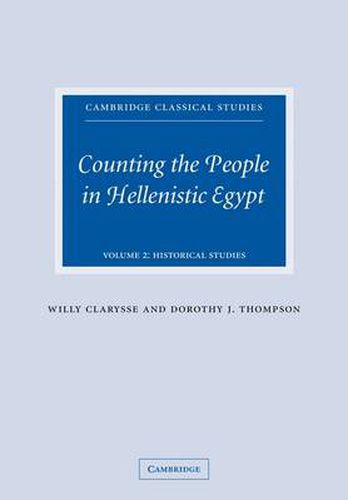Readings Newsletter
Become a Readings Member to make your shopping experience even easier.
Sign in or sign up for free!
You’re not far away from qualifying for FREE standard shipping within Australia
You’ve qualified for FREE standard shipping within Australia
The cart is loading…






The historical studies of this second volume provide an examination of the economic and social history of Ptolemaic Egypt. The salt-tax registers of P. Count not only throw light on key aspects of the fiscal policy of the Greek pharaohs but also provide the best information for family and household structure for the Western world before the fifteenth century AD. The makeup of the population is thoroughly analysed here in both demographic and occupational terms. A constant theme running throughout is the impact of the Greeks on the indigenous population of Egypt. This is traced in cultural policies, in administrative geography, in the realm of stock-rearing and in the changing religious affiliations traceable through the names that parents gave their children. The extent to which Egypt is typical of the Hellenistic world more widely is the final topic addressed.
$9.00 standard shipping within Australia
FREE standard shipping within Australia for orders over $100.00
Express & International shipping calculated at checkout
The historical studies of this second volume provide an examination of the economic and social history of Ptolemaic Egypt. The salt-tax registers of P. Count not only throw light on key aspects of the fiscal policy of the Greek pharaohs but also provide the best information for family and household structure for the Western world before the fifteenth century AD. The makeup of the population is thoroughly analysed here in both demographic and occupational terms. A constant theme running throughout is the impact of the Greeks on the indigenous population of Egypt. This is traced in cultural policies, in administrative geography, in the realm of stock-rearing and in the changing religious affiliations traceable through the names that parents gave their children. The extent to which Egypt is typical of the Hellenistic world more widely is the final topic addressed.